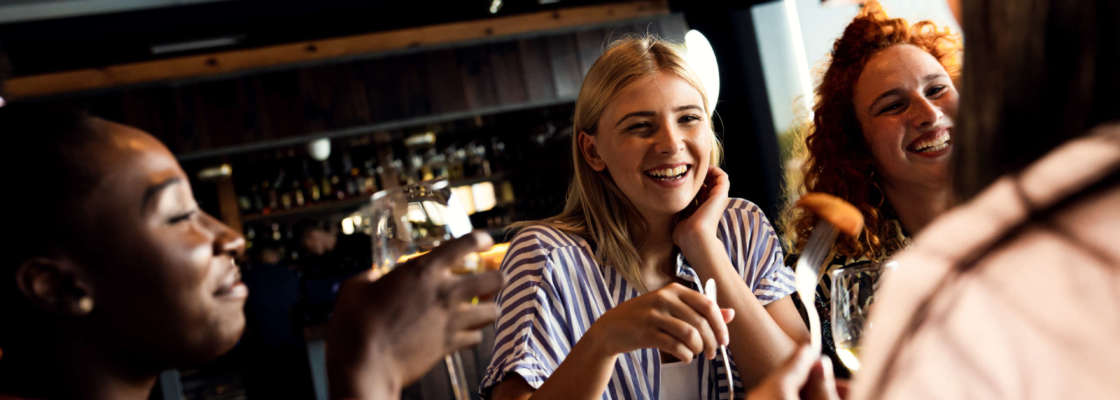Our 2024 Hospitality Report examines the period ending March 2024, during which the hospitality industry achieved sales of $15.7 billion.
Selected highlights:
- Annual sales for the year ended March 2024 reached $15.7 billion, reflecting national sales growth of 5.8 per cent over the previous year. Notably over this period menu pricing grew by 6.4 per cent, operational costs increased significantly in key areas and inflation overall was 4 per cent, indicating sales growth lags behind cost increases.
- The restaurant and cafe sector recorded sales growth of 4.6 per cent in 2024, reaching $7.8 billion in annual sales (and posting sales $344 million more than 2023).
- Despite the challenges in 2023 in the aftermath of the country’s devastating weather events, in 2024 (year end March) the Gisborne region recorded the largest percentage sales growth over the previous year. Annual sales for the region are $127.4 million.
- The catering sector, which through the Covid-19 pandemic was decimated by the cancellation of events and functions, posted the largest percentage sales increase for the industry compared to 2023. Sales for this sector grew 19.4 per cent (for the year ended March 2024).
- 145,000 employees work in the hospitality industry. Employee growth across the industry was 7.3 per cent from 2022-2023. This is a growth rate that far exceeds the growth in outlets over the same period.
- For the year ended February 2023, there were 19,518 hospitality outlets around New Zealand. This reflects an overall increase of just 27 outlets over the year previous.
While it is positive to see sales in the industry continue to grow, the period can best be characterized as one of mixed results. Despite the 5.8 per cent annual growth, many operators report facing some of the most challenging times over the past 12 months.
It is important to note that inflation grew by 4 per cent over the same period and there were significant increases in key operational costs. Additionally, in response to these challenges menu pricing was adjusted by 6.4 per cent over the period which further tempers the perceived growth. Overall these factors indicate that our growth is lagging and this is a further erosion of profitability for the industry.
In the 12 months under review the industry faced a perfect storm of challenges, including the aftermath of extreme weather events, coupled with food cost increases, declining customer traffic and spend, rising wage costs, cost of living pressures, and election year uncertainties. These all impacted overall industry productivity and profitability, however, one positive aspect amidst these challenges was the return of international tourists, who were strong contributors to trade over the Summer 2024 season.
To address some of the current challenges, we have seen business owners focused on operating as leanly as possible and employing strategies to attract customers into their businesses. With food pricing fluctuations, many owners remark on the need to be vigilant in managing food cost changes.
Regionally, three regions – Northland, Taranaki, and Wellington – recorded annual sales declines in 2024, driven by specific local challenges. Conversely, Gisborne recorded the highest percentage growth, at 20.6 per cent, with Southern Lakes, West Coast South Island, and Kaikōura also showing strong sales improvement, attributed in part to the return of international tourism.
Minimal Outlet Growth Amid Tough Conditions
There are more hospitality operations than ever before, however growth is minimal, reflecting a tightening of the market. The number of hospitality operations nationwide rose to 19,518. However this reflects minimal outlet growth of just 0.1% from 2022 to 2023 (the latest available reporting period).
All sectors recorded either no growth, or small declines in the number of outlets, with the exception of the Takeaway foodservices sector which recorded a minimal 1.6 percent increase in the number of operations.
Employee Numbers Up 7.3% In Contrast To Minimal Outlet Growth
In contrast to the minimal change in outlet numbers, employee numbers, were 7.3 percent higher in 2023 compered to 2022.
The hospitality industry now employees 145.000 people, making it the country’s 7th largest employer. The growth has been buoyed by the return of international workers to Aotearoa and positively operators report an easing of some of the staffing challenges that peaked in 2022. However, the industry continues to face skilled employee shortages for specific roles, in particular senior chefs and senior front of house roles, including restaurant managers.
Guiding our Future: The Hospitality Roadmap
To support the development of the industry, the Association continues to use the Future of Hospitality Roadmap, first developed in 2021, to support the sector. Focus areas include workforce development, economic strategies, customer attraction, industry digital transformation and technology adoption, new business models, and business preparedness in the face of future instability.
The Roadmap is under continuous review, evolving over the three years since it’s introduction. The Association continues to actively uses its guiding principles to shape our activities and initiatives, ensuring they align with the industry’s needs and future growth. A high level update and progress report on the Future of Hospitality Roadmap is provided in the Hospitality Report.
Our industry’s typically optimistic viewpoint has currently been shaken; alarmingly, according to 2024 Restaurant Association member insights, 31 per cent of businesses nationwide believe that conditions will deteriorate over the next year. Business closures, including a number of established and high-profile stalwarts, serve as stark reminders of the challenges currently confronting the hospitality sector. However, despite the tough times, together, we can navigate these times and look forward to a brighter future.
The Restaurant Association is focused on supporting in the areas that will help members plan and succeed. While the industry is expected to remain in a subdued trading environment for the remainder of 2024, operators are prepared to navigate the year with a lean approach and an eye on 2025. Yet despite the challenges of the past four years, the industry remains determined and resilient. Once cost of living pressures ease, customer behaviours will follow, and the hospitality sector is ready to welcome people back into our venues. Our industry will thrive again.
Find out more about the 2024 Hospitality Report here. Restaurant Association members can also download a free electronic copy of the full 2024 Hospitality Report by clicking here.










